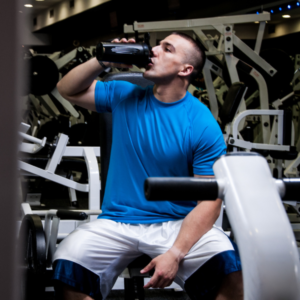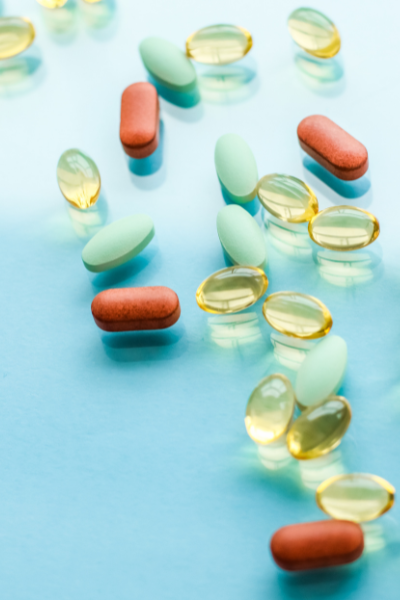Before Taking A Supplement – Ask These 4 Questions!
Protein shakes, creatine, and BCAAs… OH MY! There are so many sports supplements on the market these days and all claiming to be the next great thing. But did you know that these dietary supplements are not regulated by the FDA, and if not tested by third-party, could possibly contain harmful contaminants or unrecognizable ingredients, be ineffective, and/or trigger a positive drug screening?
So First of All, What is a Sports Supplement?
The FDA defines a sports supplement as “a product (other than tobacco) intended to supplement the diet that bears or contains one or more of the following dietary ingredients:
- A vitamin
- A mineral
- An herb or other botanical
- An amino acid
- A dietary substance for use by man to supplement the diet by increasing the total dietary intake
- A concrete, metabolite, constituent, extract, or combination of any ingredient described previously
So What Gives?? When Should I Take a Supplement, or is it Even Necessary?
 Ultimately, as dietitians, we preach taking a food-first approach to meet nutritional needs and achieve greater health benefits by consuming a large variety of whole foods and well-planned meals. Just as the name implies, supplements should be used to “supplement” the diet when nutritional needs cannot be met from food alone; they should NOT take the place of whole foods in your diet. For example, it may be advantageous for a college student-athlete to consume a whey protein supplement after a workout if it is impractical for them to meet their daily protein requirement from food alone due to their class, training, and/or practice schedule. In the case of vitamin deficiencies, iron and vitamin D are two of the most common, especially in female endurance athletes or vegetarians, and therefore may be necessary for some individuals. Other supplements typically used by athletes for their performance-enhancing benefits include creatine, caffeine, B-alanine, bicarbonate, and beetroot juice/nitrates.
Ultimately, as dietitians, we preach taking a food-first approach to meet nutritional needs and achieve greater health benefits by consuming a large variety of whole foods and well-planned meals. Just as the name implies, supplements should be used to “supplement” the diet when nutritional needs cannot be met from food alone; they should NOT take the place of whole foods in your diet. For example, it may be advantageous for a college student-athlete to consume a whey protein supplement after a workout if it is impractical for them to meet their daily protein requirement from food alone due to their class, training, and/or practice schedule. In the case of vitamin deficiencies, iron and vitamin D are two of the most common, especially in female endurance athletes or vegetarians, and therefore may be necessary for some individuals. Other supplements typically used by athletes for their performance-enhancing benefits include creatine, caffeine, B-alanine, bicarbonate, and beetroot juice/nitrates.
Sports supplements typically can be found in the form of a pill, powder, drink, or bar and are commonly marketed as beneficial for achieving one or more of the following: weight loss, weight/muscle gain, recovery, illness prevention/immunity, or fuel support. Keep in mind, however, that unless these products are tested by a third-party (i.e. NSF-approved), their safety, purity, and efficacy cannot be guaranteed since these claims are not regulated or enforced.
Here are some questions to ask yourself before investing in a supplement:
1. Is it Safe?
- Do you recognize all the ingredients on the label?
- Has it been third-party tested (Consumer Labs, NSF, USP, BSCG, Informed Choice)?
- Are you planning to take the recommended dose?
- Will it negatively affect your health in any way? (i.e. interact with any medications you are currently taking)?
 2. Is it Legal?
2. Is it Legal?
- Is it permitted for sale in the United States?
- Are any of the ingredients banned for use in sports according to the World Anti-Doping Agency (WADA)
3. Is it Effective?
- Is there good evidence to show that this product will help you meet your nutrition goals or assist in athletic performance?
- Does it contain the number of active ingredients as stated on the label?
4. Is it Affordable?
- Does it fit into your budget?
- Would whole food provide greater benefit at a lower cost?
- Are there other resources or activities you should be investing in to improve performance before seeking a supplement (i.e. following a structured strength-training program, meeting with a sports dietician)
For more information on supplements, talk to your dietician to help you weigh the pros and cons and make the best decision for you!
Sydney Anderson
MS RD LDN CPT


